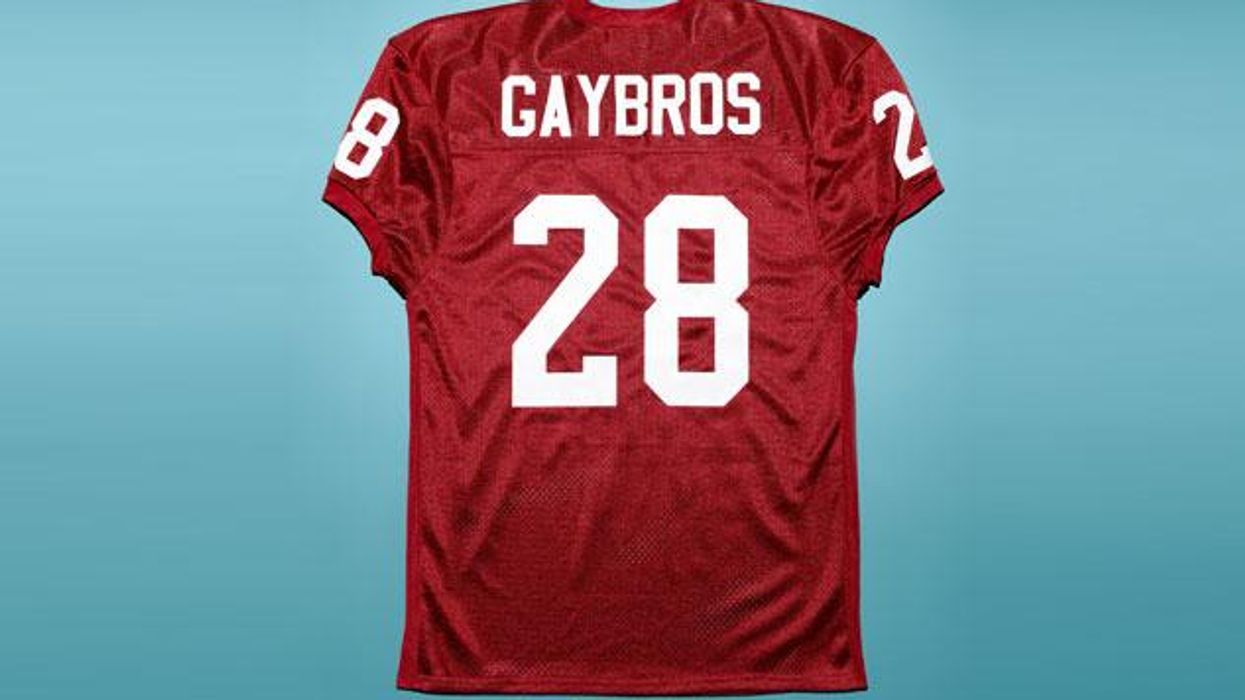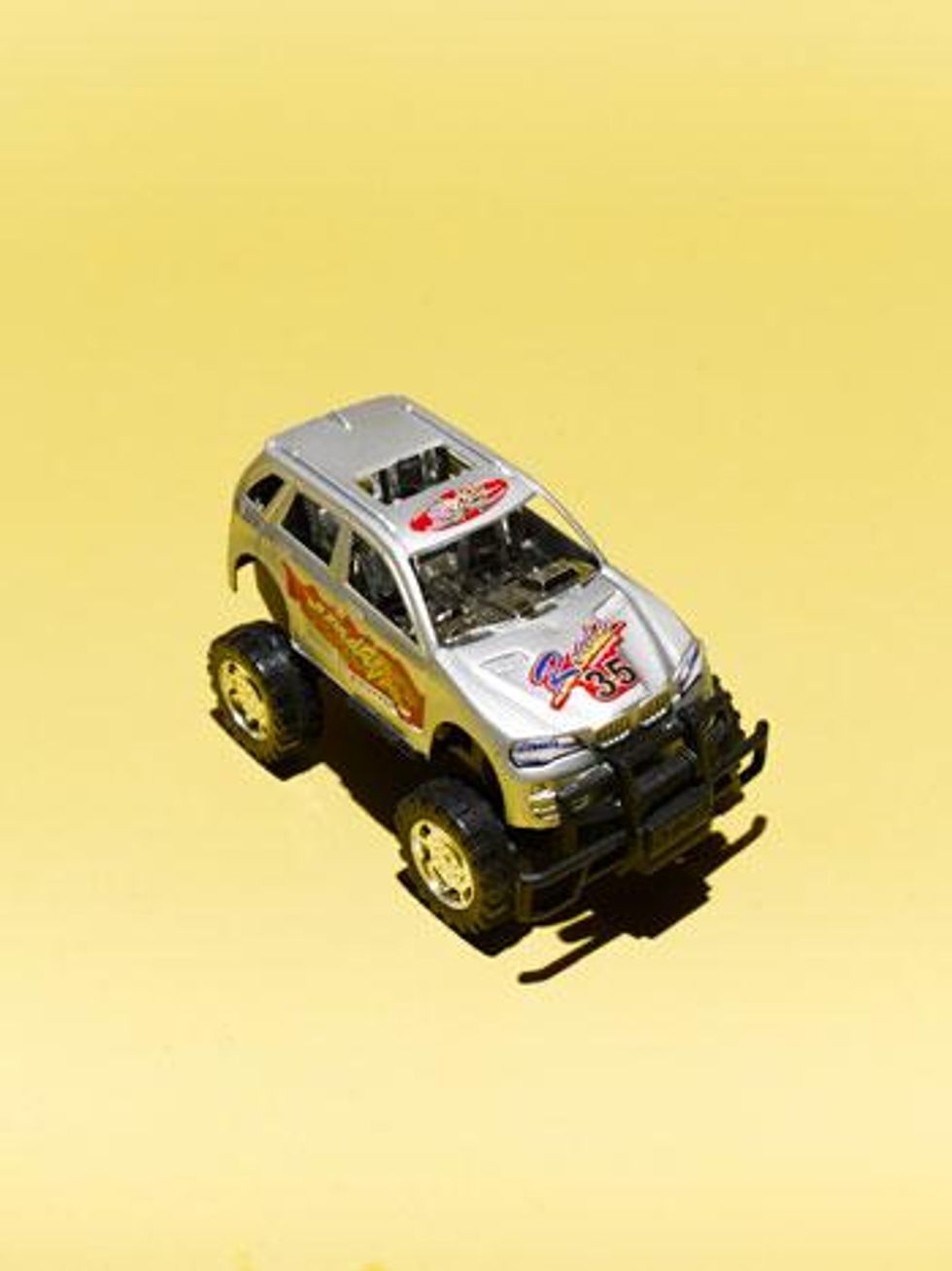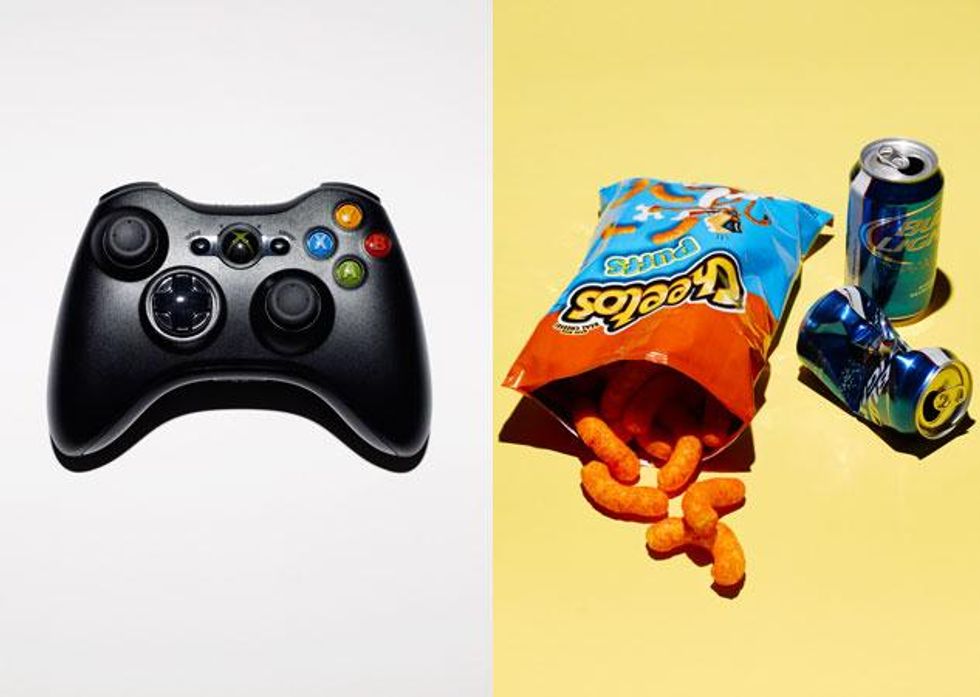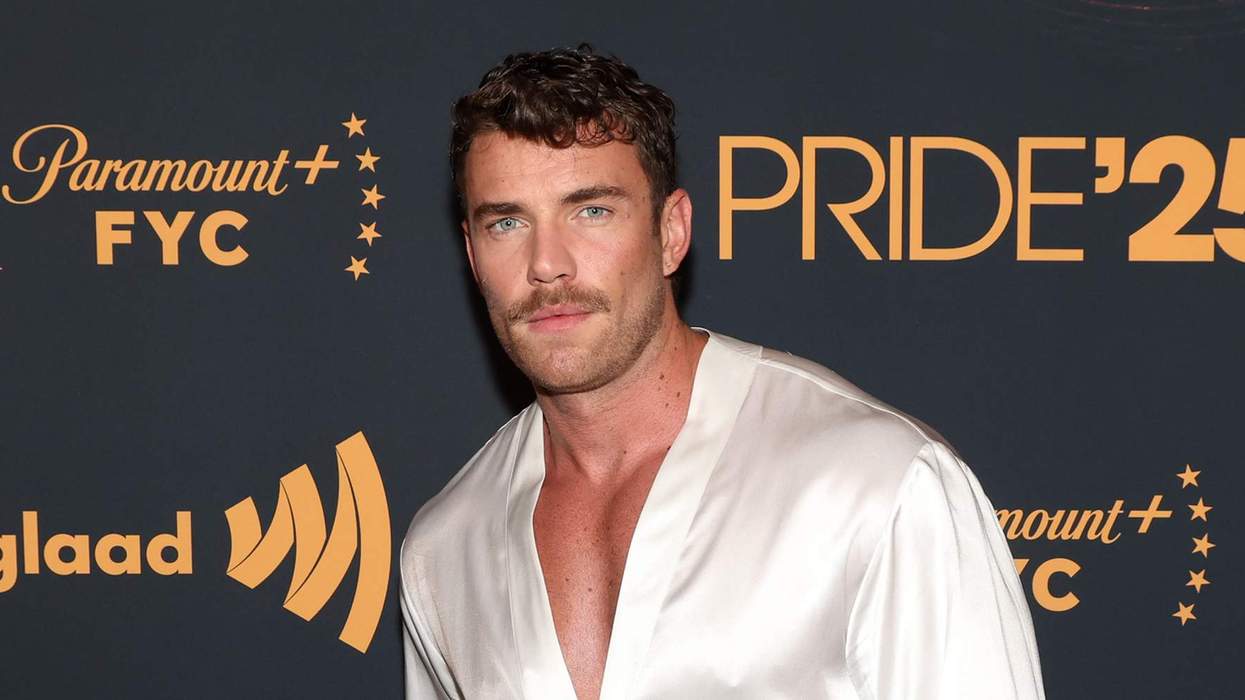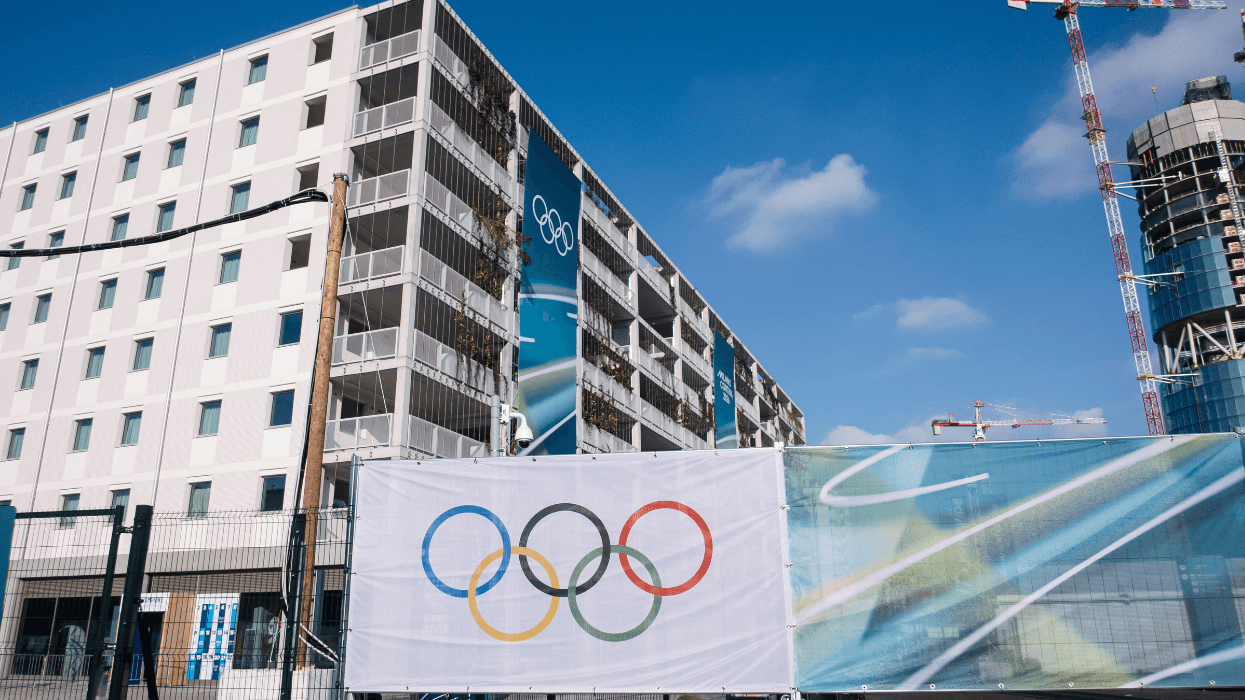Photography by Joshua Scott
"I'll drink a beer before a mixed drink any day," says Jon Allen, a 23-year-old rugby-playing graduate of Columbia College in Chicago. For people like Allen, there is now a place to talk about that.
"Gear, Grub, Guns, and Guys" is the tagline of Gaybros, a Reddit subgroup that has grown from 200 subscribers at the beginning of 2012 to nearly 28,000 today, with more than 3 million pageviews a month. For Allen, who joined the forum as a moderator just a few months after it was created, the site offers a community he can't find elsewhere -- a place where he and others like him can talk about anything, from sports to microbrewing to the military.
"There isn't necessarily a safe space for gay people to talk about these subjects, or for me to talk about how I love playing rugby," says Allen, who grew up in Oak Park, near Chicago, and came out to his parents when he was 15. "We had a very organized GSA [gay-straight alliance] and a school board that would bend over backward to make sure we projected acceptance in school," he recalls.
Despite accepting parents and a supportive school environment, Allen felt confined. "When I came out, I think I naively jumped out of one closet and into a different one. I started behaving really differently -- how I thought an out, proud gay person should behave -- and I think I used stereotypes as a guideline of what was expected of me. It was really after I started playing rugby midway through college that I came to the conclusion that there was no expected behavior other than one expected of me from the less-than-educated sect of the heterosexual population."
This sense of having swapped one set of "accepted" behaviors for another is a common thread in conversations with gaybros. Many posters on the forum are moved to declare their alienation from the "gay scene," rejecting it as an artifice of tropes and myths. "I had this picture in my mind of the gay scene, where you needed to be model-hot, financially successful, have a perfect body, and a variety of other cultural stereotypes to ever 'fit in' the gay community," writes ArmyofOne86, in a comment that is fairly typical.
The same is true for Alex Deluca, who created the group shortly after graduating from Northeastern University.
Although out at the young age of 12 and, like Allen, the beneficiary of a supportive school and community, Deluca also felt under pressure to play a certain role. "It wasn't until I was in my twenties that I realized my interests and passions weren't really aligned with the things I was actively taking part in, because I hadn't met other gay guys who shared those interests," he says. "That thought process was a spark that eventually resulted in the creation of Gaybros."
Like so many Internet memes, the rise in popularity of Gaybros was rapid and somewhat unforeseen. Today they have events and meetups in several U.S. cities, as well as in the United Kingdom, Ireland, Australia, Canada, and South Africa. "I knew I wanted to start a lifestyle community around shared interests," says Deluca. "By using the word 'bro,' it also strengthens the message that this is not a dating service and is meant to create a fraternal and friendly atmosphere among members who may not have had those shared fraternal experiences or groups growing up."
Deluca estimates that the biggest age group on Gaybros is 18 to 25, with some 80% of its members falling into the 18 to 34 category. He describes the group as being "low-pressure," with a friendly atmosphere that welcomes anyone. More than anything else, the forum seems like a place for gay young men to ask questions and find community. Some recent forum subjects have included "First date etiquette," "What is your most porn-like encounter?" and "Gaybros in a country where homosexuality is illegal, what is your life like?" (It's also sexual; they're connected to another Reddit subgroup, Gaybros Gone Wild, which has plenty of young men showing off their erections and looking for sex, just like any hookup app or dating website.)
The gaybros have been getting some attention lately: a profile of Deluca on Salon.com, an interview on Buzzfeed, an effort at taxonomy on EdgeontheNet. Are gaybros an identity, like bears? A trendy adjective, like metrosexual? In some ways they appear to share the most similarities with the '90s trend of lipstick lesbians -- gay women who flouted stereotypes and made a point of showing how feminine and stylish they could be.
"It seemed to me I was just not like other gay guys, plain and simple," explains Jack Whelan, 24, a moderator on Gaybros who lives in Dublin. "The prevailing cultural opinion of what a gay man should be often abides by a very narrow set of stereotypes, and that can be really daunting to someone who just does not fit them, or who feels like they don't fit them."
"There really aren't that many places/groups that put a focus on the traditional 'guy stuff,' from my own personal experience," writes Marc LaPlante, who lives outside Boston and, at 33 years old, is the oldest moderator of the group. "Gaybros gives an avenue, in my opinion, to talk about things that wouldn't normally come up in a bar or a Grindr conversation or other, more traditional groups."
It's difficult to glean from the gaybros what exactly this "gay culture" is that they feel doesn't speak to them. Is it Glee? Lady Gaga? Guys dancing shirtless to Rihanna? I wrote to Deluca, asking him if the people who gravitate to the forum feel there's a stereotype or image promulgated by media (including gay organizations) about what being gay is. "I think that's a fair analysis," he replied. "But it's important to note that there is nothing wrong for people who do identify with that image they see in the media... It's just sometimes very specific and can be foreign to those who grew up in conservative religious families in Southern U.S. communities, for example. We're not defining ourselves by saying we're not that, we're just coming together around different interests and presenting an additional group for people to identify with. We're simply trying to broaden the spectrum."
Created in a university setting, Gaybros acts like a fraternity, and, like many fraternities now, its creators are careful to make sure to be inclusive. It even has a charitable side; last winter they raised $5,000 for the Trevor Project in their first fundraising effort. "We're looking to reach out to organizations that affect our members, such as You Can Play, OutServe, and others," says Deluca. "We're always looking to get involved and give back to the community."
And much like the modern fraternity, the gaybro community knows how to speak the language of diversity. Deluca, Allen, and the other moderators are all quick to point out they aren't criticizing anyone. "We don't approve of shaming anyone for being who they are," says Deluca. They encourage acceptance. Allen points out that recently, when a trans male posted photos of his newly transitioned self on Gaybros, people on the site showed "nothing but support. Seeing those reactions makes me proud to be a part of what this is."
But as of yet, there hasn't been a drag queen gaybro. As a rule, effeminacy is not part of the gaybro DNA, and that strikes a chord. "THIS IS ME!!" posted a reader in response to a gaybro article on Buzzfeed. "I spend most of my time at straight bars and hang out with my straight friends, who all tell me that I don't seem gay at all. It is a huge disappointment to me that there are few guys like me who like camping, fishing, hiking, hockey, basketball, videogames, comics... And if I say that a fem guy is not for me, somehow that makes me self-hating. I wish I could find more guys like me."
"I don't feel comfortable with effeminate men," writes another commenter. "I like hangin' with my buddies... We enjoy our manhood--being masculine -- and a man is fun and comfortable. What I don't get is why out guys are prejudice[d] against us just because we feel comfortable not being obvious."
The common bond within the gaybro community is sports. Coinciding with the coming out of Jason Collins and Robbie Rogers and the growing certainty of gay acceptance in major league sports, gaybros could be a sign that coming out of the closet is reaching a new comfort level among a segment of men, the kind who consider themselves sporty, "regular," beer-drinking.
Jared Max, an ESPN sportscaster, came out publicly in 2011. "I always thought I would meet that friend and we would keep that secret together," he concedes. "A majority of my friends are straight... I couldn't relate with the flamboyant characters out on TV." Max, who as a child had been passionate about sports and sports reporting, worried that being out and gay would irrevocably change his life. "I had great fears of whether I would still be the same guy I have always been," he says. "That was the biggest focus for me: How do I go through this and come out the other side intact as who I am?"
Sports is changing, but identifying yourself as gay in that world is still daunting, and many sports-focused young men may need a checkpoint along the way, such as identifying as a gaybro. In a passage in Collins's open letter, he explains that the timing of his coming out coincided with the NBA player lockout: "The lockout wreaked havoc on my habits and forced me to confront who I really am and what I really want... I lacked the distraction that basketball had always provided."
These coming-out stories may be a bellwether. Max predicts that in five years there will be several out players on major sports teams. "The way that masculinity has been defined as 'not queer' has been breaking down over the last decade or so," says Mark Simpson, author of Metrosexy and Saint Morrissey who coined the term metrosexual. "Increasingly, you can be openly queer and still part of the masculine world, whether in sports or the military. And this does raise an intriguing possibility. Because once the loudly and compulsorily homophobic aspect of men's sports and camaraderie falls away, the homoerotic aspect is no longer hidden any more."
Max is a good example of this shifting paradigm. His bar of choice in New York City is Boxers, a hugely successful gay sports bar that recently opened a second Manhattan location. "I found my own Cheers at Boxers," he says. "It speaks to the modern gay man. I watch NFL Sundays there, the Raiders game."
In May, I attended a gaybro meetup in Hoboken, N.J., at a sports bar called McSwiggans. A baseball game was on and a group of dudes wearing baseball hats and drinking beers were glued to the screen, erupting in howls, arguing with the referees. At first I thought that these dudes--doughy, sports-fixated, "straight-acting"--were the gaybros. Then I noticed two young men walk in who set off my gaydar. I followed them as they milled through the space and looked around. They went outside to a patio area I hadn't noticed before, where a group of about 15 or 20 young men were gathered, sitting at tables far from the TV screens. They looked friendly, more approachable, and, well, gay.
"Is this the gaybro meetup?" I asked. It felt awkward to walk up to someone and ask this, as awkward as asking, "Hey, are you gay?" They looked at me nervously at first. They were all young, collegiate. Many wore short-sleeved collared shirts and khakis or cargo shorts.
I started chatting with a blond guy and his friend. I asked where they were from. Many lived nearby, the friend said, in Jersey City especially. I asked the blonde if he was from Jersey City as well. "No. I'm from nearby, in the contiguous region." Do you go out in the city? "Eventually I will, but not yet," he said, carefully.
I remember being like this: guarded, tentative, not so sure I was psyched to become part of gay culture. In the late '80s and early '90s, I was in college. I avoided the Lesbian/Gay Student Union, at first -- the president of the organization seemed precise and wore pink oxford shirts. Being "out and proud" looked intimidating and consuming and not like who I was. I remember watching The Boys in the Band on TV and being frightened by their bitchy repartee; one false move and you could turn into a bitchy queen. It was also a time when gay men who were not much older than me were dying in great numbers. Simply becoming gay and coming out seemed risky, like an infection. But that didn't stop me --eventually I got a fake ID, started going to bars, took gender studies classes, read Dancer from the Dance, joined ACT UP rallies, and started my path toward self-acceptance.
Now it's 2013. Creating a gay identity may be getting easier, but it still seems that becoming gay can be a daunting and painful process at first. Whether you choose to wear a football jersey or fabulous sequined top, trying to define your sexual self is a long, aching, and often awkward process. Becoming a gay man -- becoming a man -- takes time, a lot of missteps, and constant inquiry. Perhaps being a gaybro is just a phase.


